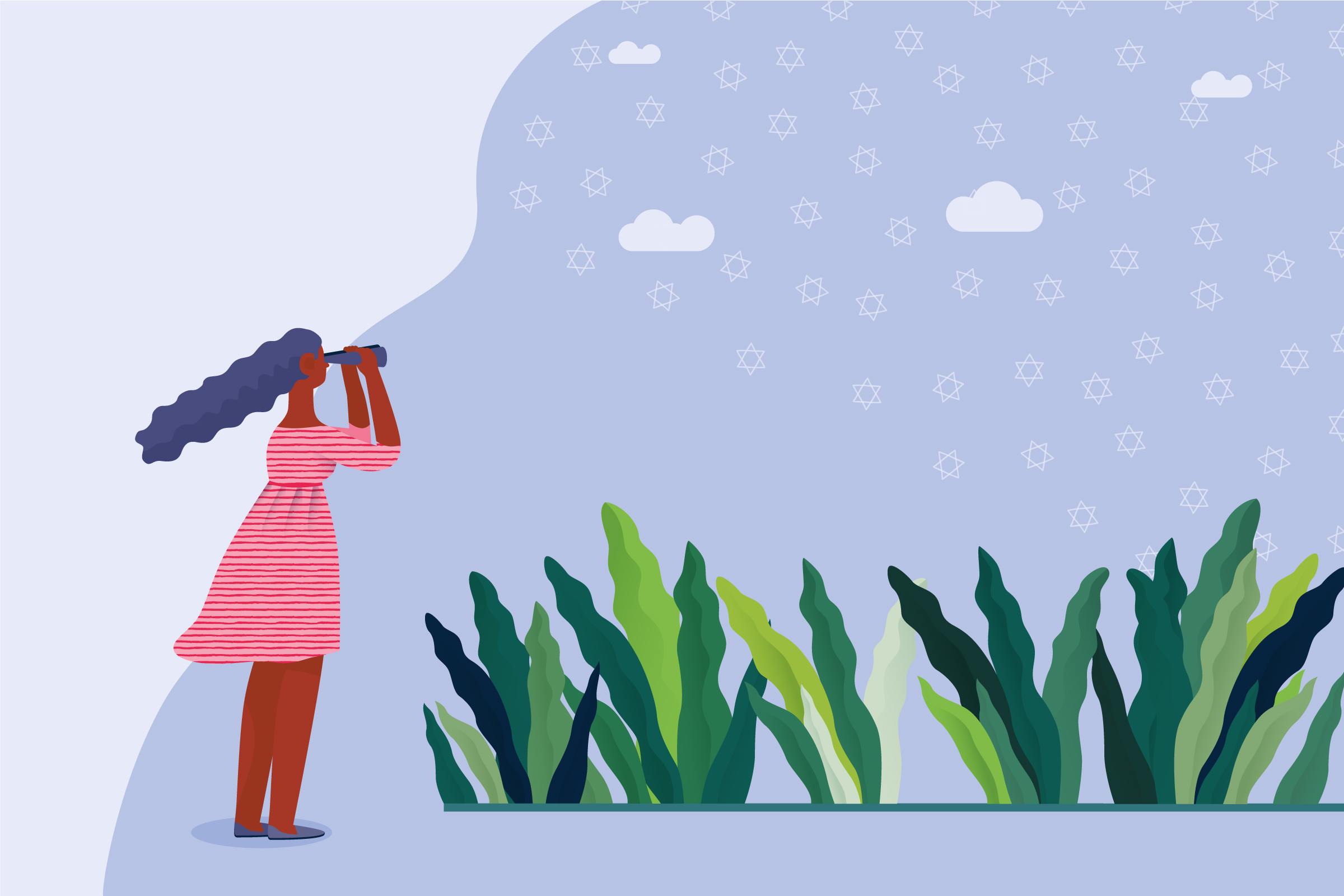As a baby, I was adopted into a Dutch Protestant home. My adoption was through the state of New York. The paperwork stated that my birth mother was Jewish, but she did not specify that I needed to be placed in a Jewish home. So, growing up, I did not know any other Jewish people or even have the faintest idea of what it meant to be Jewish. My only connection was through my faith in God.
My father was a pastor, and my mom played the piano in the church. I went to Sunday school, bible classes, and girls’ club, and sang in the children’s choir. The church was my second home.
Still, at an early age, my parents told me I was Jewish. They told me I was lucky because I was one of God’s “chosen people.” As I have gotten older, I’ve learned to wear this identity proudly.
When I was 10 years old, my parents introduced me to Hanukkah and started my collection of menorahs and dreidels. To this day, they still send me a Hanukkah card every year. When I turned 19, they saved up some money to send me on a tour through Israel so I could learn more about my culture.
I met Haim on the first day of the tour. I was hot, exhausted, frustrated, and to be honest, a little scared to be by myself in a foreign country. Haim was an older gentleman who drove the bus on the tour. He patted the front seat directly behind the door and told me to sit down. I had just been detained in immigration for two hours because I was the only person on the tour not from Michigan. I was also the only Black person in the group, fueling more questions from the immigration agents.
Haim gave me a bottle of water and chatted with me as he drove the group to the hotel. When I saw him at breakfast the next day, he waved me over and asked why I had come to Israel. “You are not white, why are you here?”
I fumbled over my answer, telling him about being adopted and wanting to know more about my Jewish roots. I told him that one of my biological parents is Jewish and the other is Jamaican. He asked me which one of my parents was Jewish. I told him that my mother is, but I had never met her. Haim smiled big and said, “Your mother is Jewish, then you are Jewish. It’s not about Jewish roots, you are Jewish.”
This was the first time in my life a Jewish person affirmed my Jewish identity. I had always felt like an imposter, never really knowing enough to have rights to any identity. My relatives were Jewish, and at best I was maybe half Jewish, I thought. I had never been recognized or claimed by anyone else as Jewish — and I wasn’t ready for just how amazing that would feel.
For the rest of the trip, Haim made sure that I knew about important stories and historical sites that were fundamental to Israel’s history. He pointed out the field where his brother had lost his life after stepping on a land mine during the Six Day War in 1967. He told me about different religious groups who had come into the country and stolen artifacts. He introduced me to local merchants in souvenir shops who all gave me an extra discount that the others in my group were not privy to. I felt special and validated. I was welcomed in this Jewish space as someone who belonged. Belonging was something that I always struggled with, and here I was, in a foreign country, experiencing just that.
Four years later, when I met my birth mother for the first time, she was extremely excited to learn that I had been to Israel. She wanted to know if I had visited a kibbutz. I had.
“I always wanted to go live on a kibbutz,” she told me.
We talked about the Dead Sea, Jerusalem, and the Wailing Wall. I told her that I had put a prayer into the wall. She was fascinated. I was shocked. I always envisioned that my Jewish birth mother would be the one to teach me all about Judaism, but in fact, I was answering more of her questions.
As our relationship deepened, I learned more about the people I came from. My great-great-grandparents lived in Russia and were forced to flee during a pogrom. At the time, my great-great-grandmother was pregnant. They found refuge in France, where she gave birth to my great-grandfather. Eventually, they came through Ellis Island and settled in New York.
Being adopted has often left me feeling disconnected and culturally isolated from anyone related to me. I have struggled with not only feeling like an imposter, but also with integrating all the pieces of my identity. The trauma of being separated from my birth family and having to learn how to navigate the ugly side of humanity left me anxious. Most of my learning about identity and cultural norms have been a lonely journey.
And yet, even though I never met my Jewish grandparents, I cannot help but feel connected to their story. They were forced to leave everything that was familiar to them and live in a foreign land. They had to learn a new culture and try to integrate their identity with their new surroundings. Adoption has forced me to do the same.
When I left Israel, Haim gave me a bottle of white wine. He told me to go home and tell my family and friends everything that I had learned. “And then you celebrate,” he said, “because now you have found your people.”



